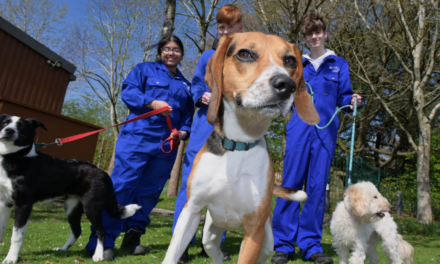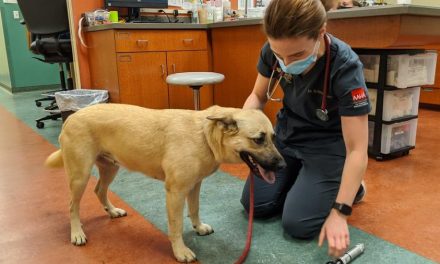A breakthrough in diagnostic testing for bacterial infections in dogs has been announced by scientists, potentially revolutionizing the way these infections are identified and treated. The innovative method allows for rapid testing and appropriate antibiotic treatment on the same day, eliminating the delays associated with conventional diagnosis methods that require days of culturing to identify the bacteria present.
The new approach, developed by researchers at the University of Edinburgh, utilizes kits optimized for common bacterial species to extract all DNA from a sample without prior knowledge of the present species—a process known as metagenomic DNA extraction. This is combined with nanopore sequencing, a technology that generates DNA code from samples, and a data analysis tool that identifies bacteria based on their DNA fingerprint. As a result, the identification of bacteria happens in real-time, providing results within a few hours.
In addition to its speed, the new system offers valuable insights into how the bacteria present are likely to respond to antibiotic treatment. This enables veterinarians to prescribe the most appropriate drugs, limiting the use of inappropriate or broad-spectrum antibiotics and preventing lengthy courses of treatment.
The researchers tested their method on skin and urinary bacterial infections in dogs, successfully detecting bacteria within just five hours. The system proved effective in identifying bacterial species that are challenging to identify using conventional culturing methods and accurately determining whether the bacteria present were likely to be resistant to antibiotics.
Dr. Natalie Ring, Senior Clinical Researcher at the University of Edinburgh’s Royal (Dick) School of Veterinary Studies and Roslin Institute, commented on the significance of the discovery, stating, “Our method offers a swift way to diagnose bacterial infections and prescribe appropriate antibiotics within hours of patient testing. Following our work with skin and urinary infections in dogs, we are confident that this approach has potential for use across many animal species, and in humans, and has applications in other infection types. It could play a significant role in enabling the responsible use of antimicrobial treatments and limiting antimicrobial resistance.”
The study, published in Microbial Genomics, marks a promising step towards the responsible use of antibiotics and limiting antibiotic resistance in both animals and humans. The researchers believe their system can be adapted for various samples and infections across animal species, making it a potential game-changer in the field of veterinary medicine.
The Dogs Trust played a crucial role in supporting this groundbreaking research through their Canine Welfare Grant program, which funds research projects with clear pathways to positive welfare outcomes. Paula Boyden, Veterinary Director at Dogs Trust, expressed their excitement for the study, saying, “We were delighted to provide funding for this study by the Roslin Institute and Royal (Dick) School of Veterinary Studies, which has developed a new technology for the rapid diagnosis of bacterial infections. The technology will significantly reduce the time taken to receive testing results, from several days to a matter of hours. This will allow for much quicker treatment of the canine patient and consequently a potential reduction in recovery time.”
With its potential applications across animal and human medicine, this innovative testing method holds the promise of not only benefiting our beloved furry friends but also contributing to a broader understanding of infections and treatments for a variety of species.








